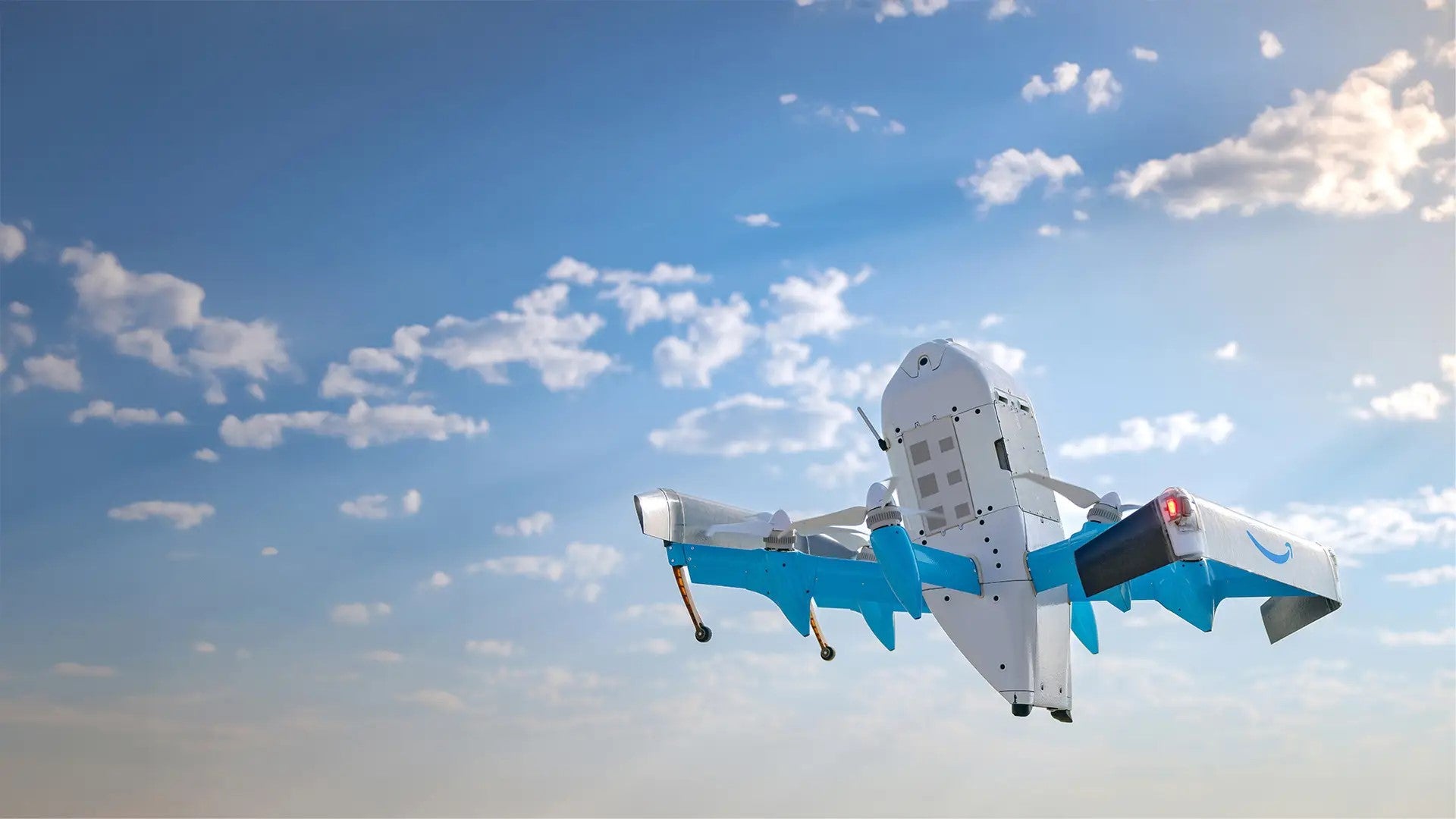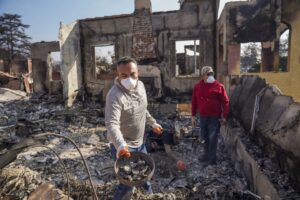Amazon Prime Air, the drone delivery arm of the e-commerce giant, is temporarily halting operations in Texas and Arizona to upgrade its drones’ software.
The move follows crashes at Prime Air’s test facility in Pendleton, Oregon, in September and December, first reported by Bloomberg.
According to Bloomberg, a software issue was the culprit behind two previously unreported crashes of the firm’s MK30 drone in December. Prime Air spokesperson Sam Stephenson told FLYING the incident was not the “primary reason” the company voluntarily suspended all commercial service on Friday—that would be the software upgrade, he said. But Stephenson could not say whether the upgrade is linked to the software issue reportedly involved in the crashes.
The pause comes as the beleaguered drone delivery service was beginning to gather momentum with key FAA approvals that extended its coverage radius.
“Safety underscores everything we do in Prime Air, and our MK30 drone is safe and compliant,” Stephenson said. “It’s designed to safely respond to unknown events in a known way, and the overall architecture of the drone has performed as expected…Our services will resume once these updates are completed and approved by the FAA.”
The FAA declined to comment on this story, instead directing FLYING to the National Transportation Safety Board (NTSB).
According to Bloomberg, the two MK30 drones—one of which caught fire after impact—were grounded due to light rain interfering with their software. NTSB accident investigation notifications indicate no injuries, but the agency will conduct a Class 4 investigation—considered the least extensive category—to determine what went wrong. An aviation safety inspector with the FAA’s Portland office is listed as an additional investigator.
The NTSB and FAA are also investigating a crash in September involving two MK30 drones that collided during testing. Amazon told Bloomberg it modified its training and procedures following that incident.
“These incidents occurred at our private and closed testing facility, where the purpose of these tests is to push our aircraft past their limits—it would be irresponsible not to do that,” Stephenson said. “We expect incidents like these to occur in those tests, and they help us continue to improve the safety of our operations.”
Prime Air’s temporary shutdown comes just a few months after the company launched service in Phoenix’s West Valley, which became its second U.S. market—joining College Station, Texas—after operations in Lockeford, California, were shuttered last year. In both locations, its remote pilots have FAA approval to fly drones beyond their visual line of sight (BVLOS), which can extend the aircraft’s range and open the service to more customers.
In August, Prime Air was selected as one of six participants in a set of U.K. drone delivery trials, bolstering its plans to expand to the U.K. and Italy.
At the same time, the firm has barely scratched its goal of completing 500 million drone deliveries per year by the end of the decade. It also faces pushback from College Station residents, who have complained about the drones’ noise and opposed a planned expansion of the service.
Credit: flyingmag.com











